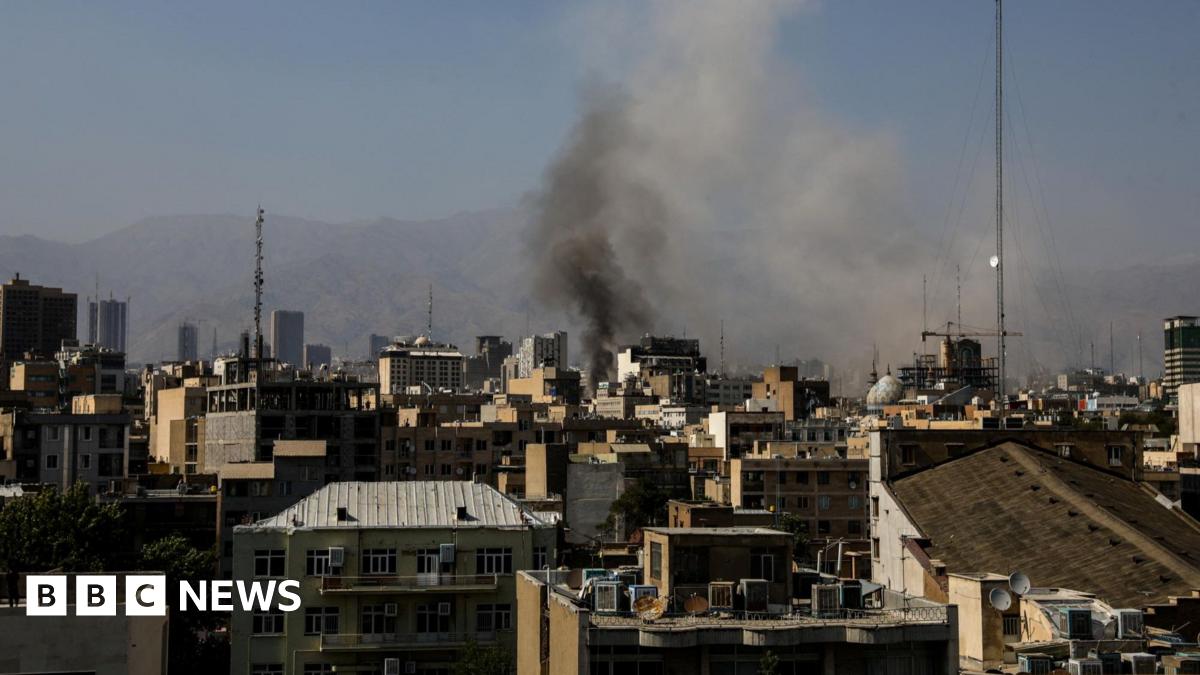Israel Issues Stark Warning: Tehran Faces Retaliation Amid Escalating Conflict

Tensions soar in the Middle East as Israel's Defense Minister delivers a forceful warning to Iran, threatening severe repercussions if retaliatory strikes against Israeli targets continue. This declaration comes amidst growing international concerns about a protracted and destabilizing conflict between the two regional powers, following a series of escalating exchanges.
The recent tit-for-tat strikes have heightened anxieties of a wider regional war, potentially drawing in other nations and further disrupting global stability. Iran launched its attacks in response to Israel's alleged strike on an Iranian military facility earlier this week, marking a significant escalation in their long-standing shadow war.
Israel's Defense Minister's statement, a blunt and uncompromising message, underscores the seriousness with which Israel views Iran's actions. The threat of “Tehran will burn” is a clear signal of Israel’s willingness to respond with overwhelming force if provoked further. This escalation follows a pattern of increasingly bold actions from both sides, fueled by years of mistrust and animosity.
A Timeline of Recent Events:
- Early This Week: Alleged Israeli strike on an Iranian military facility.
- Iran's Retaliatory Strikes: Iran launches direct attacks on Israeli territory, targeting military bases and strategic infrastructure.
- Israel's Response: Israel vows strong retaliation and issues the stark warning to Tehran.
The international community is urging restraint from both sides, emphasizing the need for de-escalation and diplomatic solutions. However, with each strike, the path to peace appears increasingly challenging. The United States, a key ally of Israel, has expressed its support for Israel's right to defend itself while also urging caution to avoid further escalation.
The Potential for Wider Conflict:
Analysts warn that the current situation could easily spiral out of control, drawing in other regional actors like Hezbollah in Lebanon and various proxy groups. The involvement of external powers, such as the United States and Iran's allies, could further complicate the conflict and prolong its duration.
The economic implications of a prolonged conflict are also significant. Oil prices are already volatile, and a wider war could disrupt global energy markets, impacting economies worldwide. Supply chains could be disrupted, and trade routes could be jeopardized, leading to further economic instability.
Looking Ahead:
The coming days and weeks will be critical in determining the future trajectory of the conflict. Diplomatic efforts to mediate a ceasefire and prevent further escalation are underway. However, the deep-seated mistrust and animosity between Iran and Israel pose significant obstacles to a peaceful resolution. The world watches anxiously, hoping for a return to stability and an end to the cycle of violence.
The situation remains fluid and highly unpredictable. Continued monitoring of developments and a commitment to diplomatic solutions are essential to averting a wider and more devastating conflict in the Middle East.





